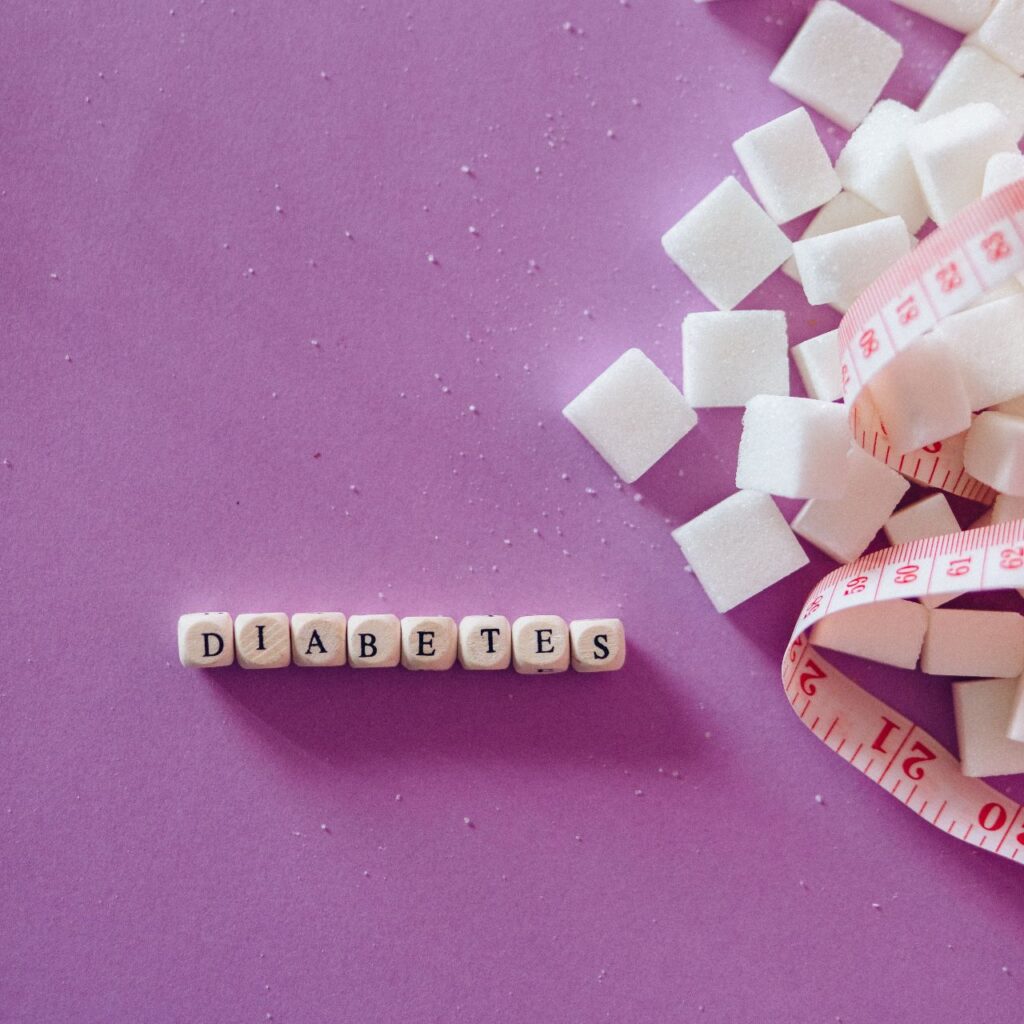Diabetes is a growing problem in the UK, with 4.9 million sufferers, and a further 13.6 million currently at risk of Type 2 diabetes. A whopping 10% of the entire NHS budget is spent on treating the disease.
Diabetes Awareness Week 14-20 June, looks to highlight the personal burden of this ever growing disease, so we explain below the difference between the main types of diabetes, and where to find more information if you’re concerned about symptoms which can often be diagnosed late.
Type 1 Diabetes
Type 1 diabetes is a serious condition where your blood glucose (sugar) level is too high because the pancreas can’t make insulin, a hormone that transports sugar around the body in the blood, to fuel every cell in our body. This results from an autoimmune reaction, our own immune system attacking the cells of the pancreas that produce insulin, meaning it can’t produce any at all.
When you have type 1 diabetes, your body still breaks down the carbohydrate from food and drink and turns it into glucose. But when the glucose enters your bloodstream, there’s no insulin to transport it into your body’s cells. More and more glucose then builds up in your bloodstream, leading to high blood sugar levels. Insulin injections and regular monitoring of blood sugar levels are essential to avoid medical complications
Type 2 Diabetes
Type 2 diabetes affects 90% of all diabetic patients, and may be preceded by insulin resistance. Insulin resistance is when cells in your muscles, fat, and liver don’t respond well to insulin and can’t easily take up glucose from your blood. As a result, your pancreas makes more insulin to help glucose enter your cells. As long as your pancreas can make enough insulin to overcome your cells’ weak response to insulin, your blood glucose levels will stay in the healthy range. However over time, the pancreas can become worn out, trying to keep up with the levels of glucose in the blood, and can eventually stop producing enough insulin.
In addition to diet and lifestyle, additional risk factors for developing the disease are being aged 45+, any family history, Black and Asian ethnicity, high blood pressure and/or cholesterol, and obesity.
Sign and symptoms
Symptoms for both types of the disease are the same:
- Going to the toilet a lot, especially at night.
- Excessive thirst.
- Feeling more tired than usual.
- Losing weight without trying to.
- Genital itching or thrush.
- Cuts and wounds take longer to heal.
- Blurred eyesight
However with Type 1, symptoms are more likely to appear suddenly, whereas with Type 2, there is a greater chance that symptoms will gradually appear over a long period of time so they may be less noticeable. Your GP is likely to first measure your HbA1C (glycated haemoglobin) protein via a blood test, which measures your average blood glucose level over the last 2-3 months.
Gestational diabetes
Gestational diabetes can develop during pregnancy, usually diagnosed via a blood test between 24-28 weeks pregnant, though you may be screened via an oral glucose tolerance test first.
You are at greater risk if you:
- are overweight or obese
- have had it before
- have had a very large baby in a previous pregnancy – 4.5kg/10lb or more
- have a family history of diabetes – parent or sibling
- have a South Asian, Black or African Caribbean or Middle Eastern background.
For more information
If you are worried about any of the symptoms mentioned, please talk to your GP, or the charity Diabetes UK has lots of information and support on their website. If you are managing your diabetes, the charity would like to highlight stories from the community via #DiabetesStories to encourage support during Diabetes Awareness Week.







